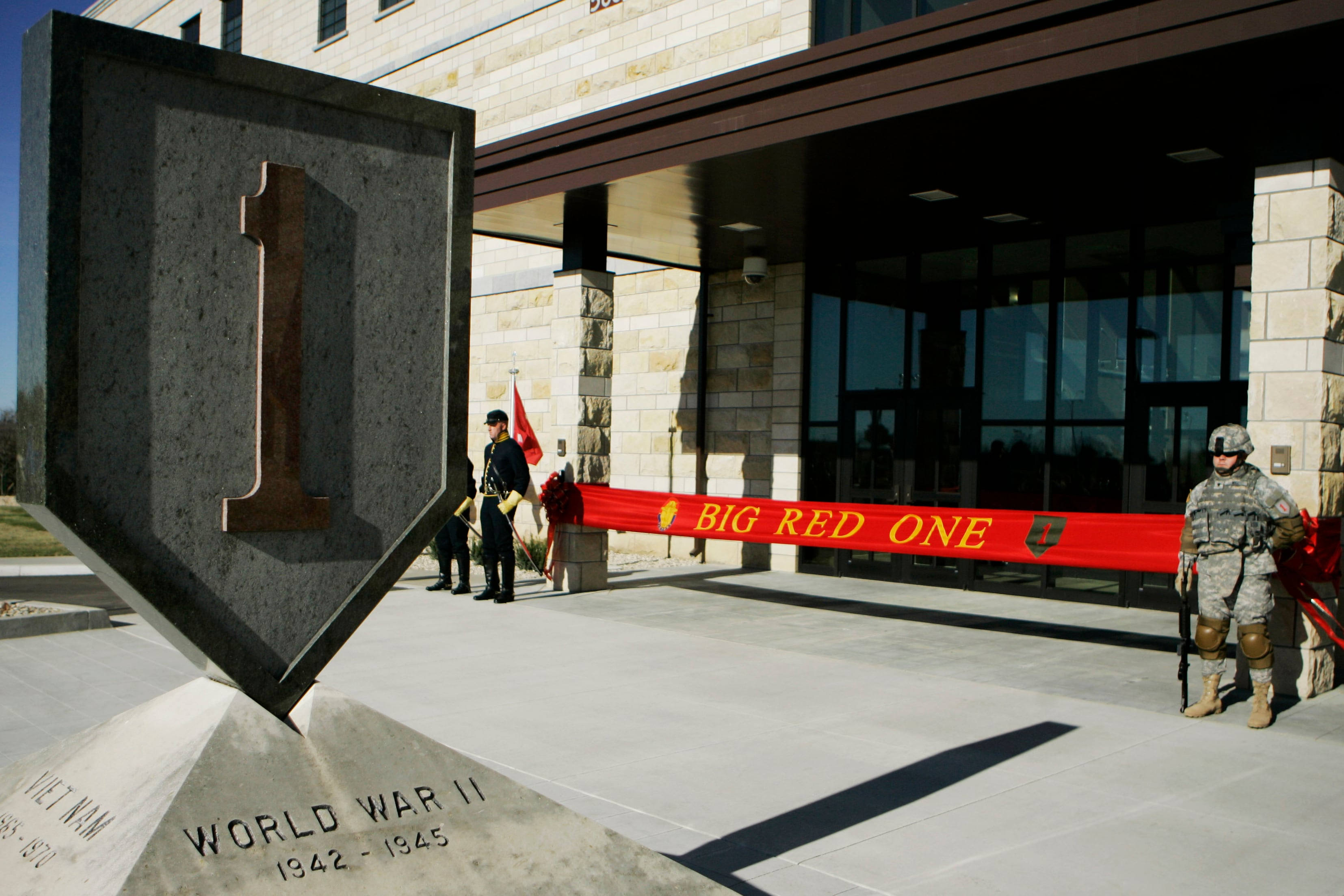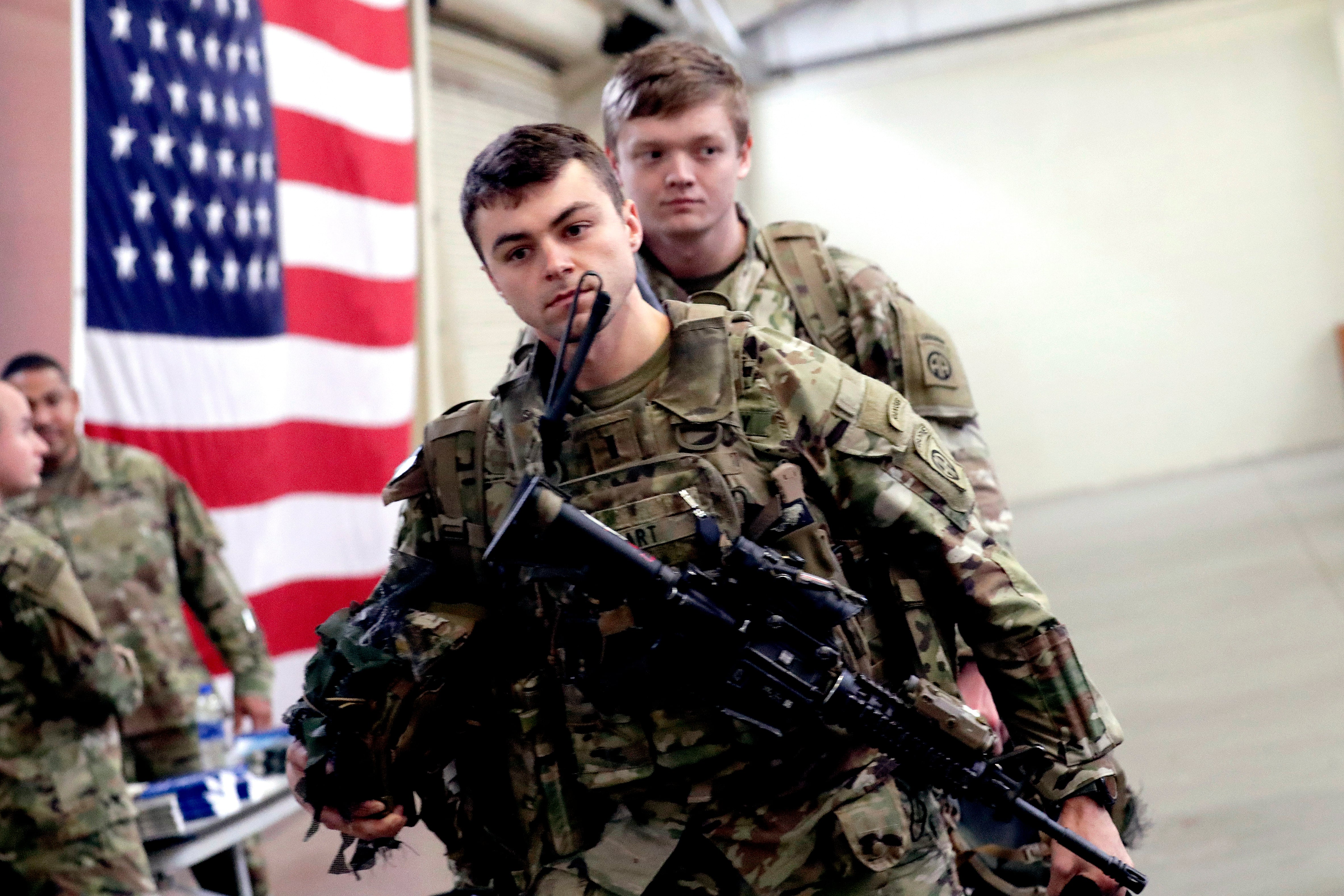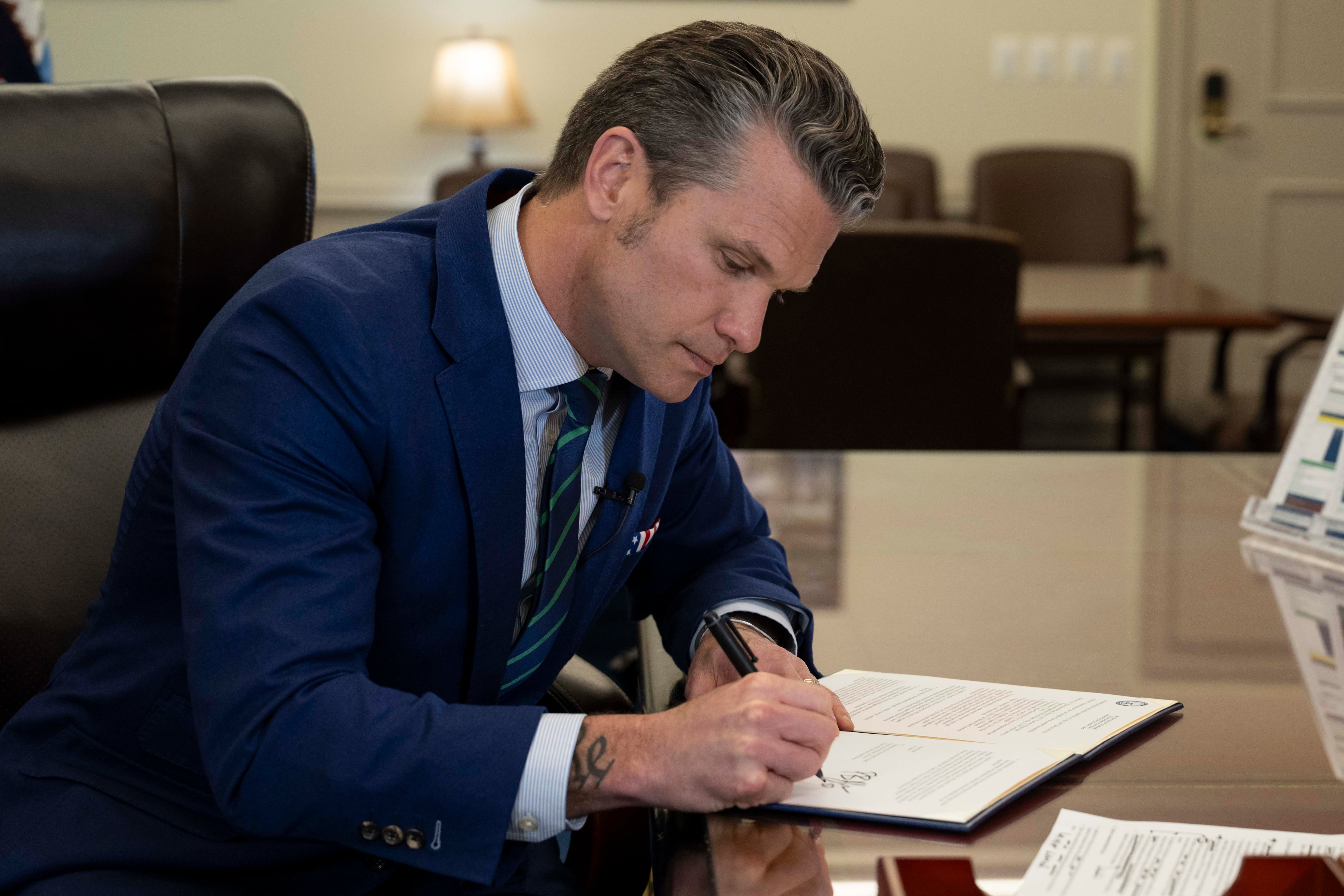A man who served in the U.S. Army for less than a year was sentenced to 19 years in federal prison without parole after he pleaded guilty to attempting to provide material support to the Islamic State group, according to a judgment filed Wednesday in Missouri Western District Court.
Robert Lorenzo Hester Jr., 28, was sentenced for his role in making preparations to launch a terrorist attack with persons he believed were ISIS members but were actually undercover law enforcement employees.
“Hester attempted to provide material support to ISIS by assisting in what he believed would be a murderous terrorist bombing and gunfire attack,” an FBI criminal complaint reads.
Confidential sources reported Hester to the FBI in mid-2016 after he posted pictures of various weapons, including one of a handgun and a knife next to the Quran, and after he changed his social media profile picture for two of his accounts to an image of the Black Flag of Tawhid, a banner that was co-opted by ISIS. Hester posted on social media under the alias “Rabbani Junaid Muhammad," according to the complaint.
Undercover FBI agents met with Hester in person on many occasions and communicated with him over social media and through encrypted messaging apps.
Online, Hester told agents that the he wanted a “global jihad," and suggested “hitting” the U.S. government “hard,” while noting that it would not be “a one man job," the complaint reads. He brought up potential targets, to include “military bases,” and spoke of the perceived ease with which one could access those installations. Hester identified one Missouri base by name, according to the FBI complaint.
Hester specified that “[a]ny government building in DC would get attention of everyone," the filings read. Citing his brief enlistment in the U.S. Army, Hester also told an undercover agent that he was “trained really well with assault weapons” and said his favorite firearm was the AK-47 rifle.
RELATED

After talking online, Hester was offered an in-person meeting with a “like-minded brother,” the complaint reads. Hester met “on numerous occasions” a person who was introduced to him as a terrorist operative and who claimed to Hester that he was planning an ISIS attack involving multiple operatives, bombs, guns and mass casualties.
Hester’s actions indicated he was prepared to participate in the plot, an FBI agent said in court filings. He obtained boxes of roofing nails that he was told will be used in a bomb, and declined multiple opportunities given to him to leave the operation, the agent added.
“Hester did not hesitate when the undercover showed him a cache of three machine guns and two handguns that would be used in the ‘attack,’ and two pipes that would be used to construct the ‘bombs,'" the complaint reads. “In fact, in the days after seeing this display ... Hester provided information on storage units that could be used to hold the weapons and agreed to obtain additional supplies.”
A day after undercover agents began talking with him, Hester was arrested and charged with a felony count of property damage and unlawful use of a weapon during an altercation outside a grocery store in Columbia, Missouri, that was unrelated to the FBI investigation. Hester was released, but went on to violate his bond conditions by failing a urinalysis test for marijuana — a violation of Islamic law and custom, the complaint noted.
Hester and the undercover agent chatted over social media and an encrypted app about coordinating with like-minded people, but Hester indicated that he did not actually know anyone who could help and would have to rely on the undercover agent to make connections.
RELATED

However, Hester appeared to have an interest that went beyond the FBI’s instigation.
In late October, he sent a link to an undercover agent over an encrypted app that led to a particular chat channel, “which I know from my training and experience is an invitation-only channel that is pro-ISIS and provides updates on fighting in Iraq, Syria and elsewhere," an FBI agent said.
During his in-person meeting with an undercover, Hester explained that he wasn’t satisfied with the teachings at the local mosque, which he said were “very moderate and very watered down.”
Hester ultimately began talking with the undercover agents about committing terror attacks that “could actually make a difference.” Rather than a random shooting, he said he wanted to “hurt the economy” by “hitting oil pipelines and oil markets.”
An undercover agent repeatedly told Hester that he could disassociate himself from the operation, because “this is real” and there would be “no turning back.” Hester confirmed that he understood, according to the complaint.
“After thoroughly explaining to Hester that it was acceptable for him to decide to take care of his family rather than be involved in the operation, Hester said, ‘I’m in,’” the complaint reads. Hester told the agent that he wanted to help anyway he could, which included fighting and training others on “everything I was taught in the Army."
Hester continued to meet with the undercover agents throughout the winter, with him periodically purchasing materials for their phony terror plot. The operation culminated in an arrest in February 2017. He has been held in federal custody since then and pleaded guilty in the fall.
Kyle Rempfer was an editor and reporter who has covered combat operations, criminal cases, foreign military assistance and training accidents. Before entering journalism, Kyle served in U.S. Air Force Special Tactics and deployed in 2014 to Paktika Province, Afghanistan, and Baghdad, Iraq.





